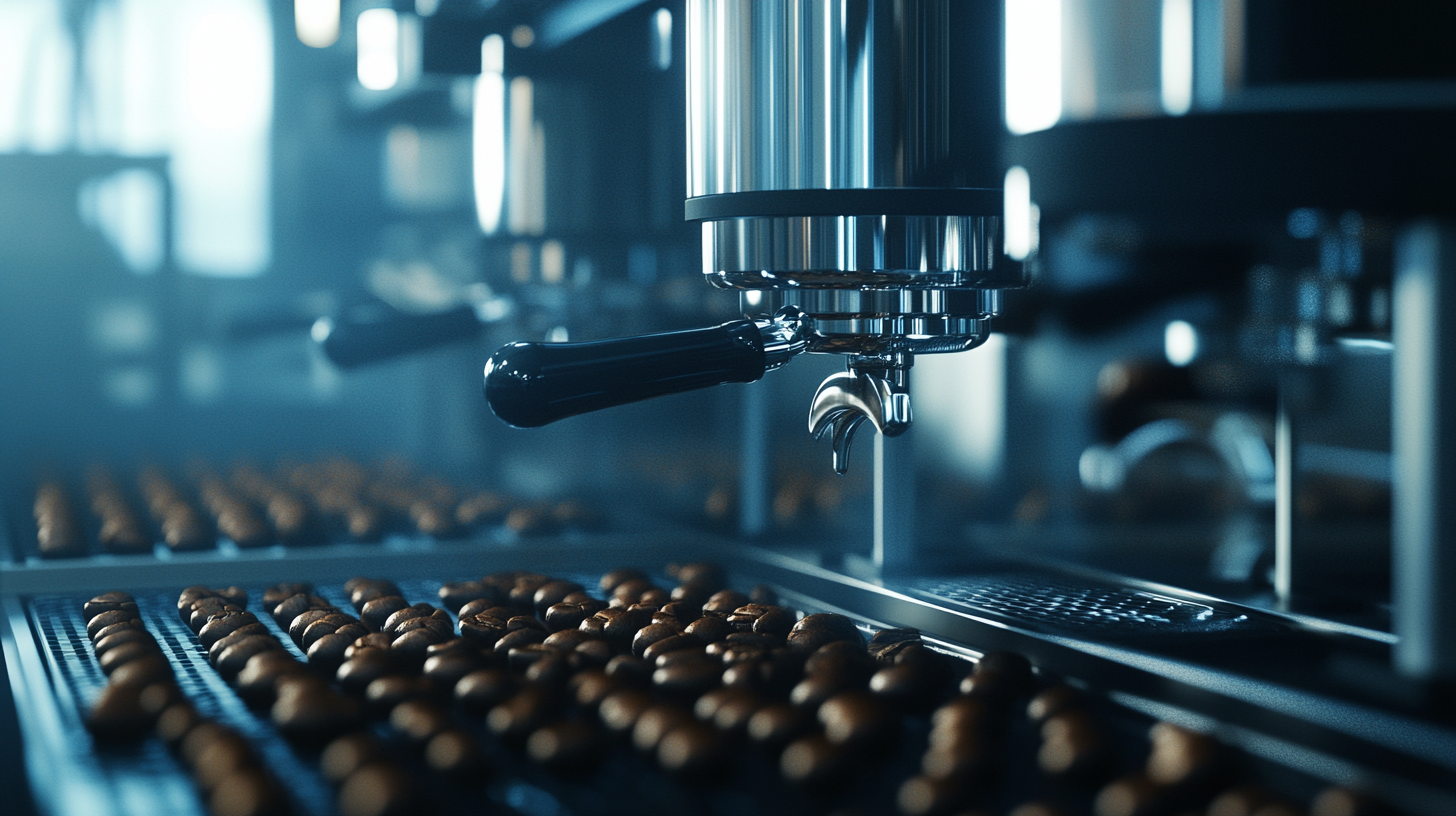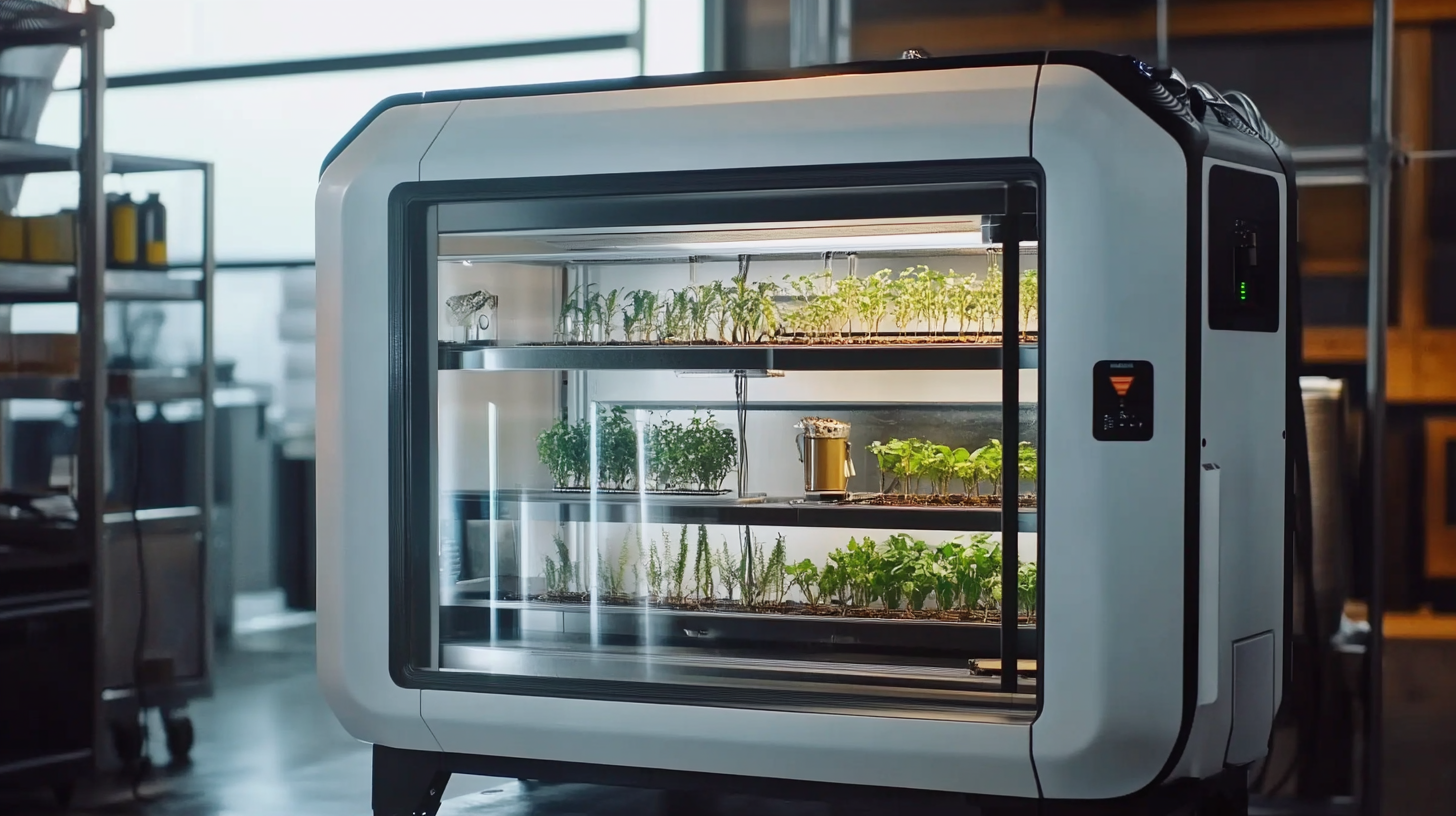Revolutionizing Coffee Production: The Future of Automated Coffee Solutions for Global Buyers
Technological innovations have recently triggered a revolution in coffee industries and automated coffee solutions are one of the heralds of this transformation-the promise of revolutionizing coffee production, processing, and distribution. As demand for high-quality coffee increases across the globe, stakeholders are investing in automation to improve efficiency, minimize labor costs, and ensure standardization in product quality. This shift would eventually make life relatively easier for consumers, farmers, and distributors when it comes to obtaining that perfect cup of coffee.
As we recoil to the future of Automated Coffee solutions, the undeniable truth is that they present such a great prospect for reinventing the coffee supply chain-from precision farming techniques that enhance crop yield to treatise sophistication in brewing, which truly brightens up flavor profiles-and are set to redefine industry standards with all types of automated applications in the industry. This blog tries to explore and explain how the different features of Automated Coffee answer the requirements of global buyers while tackling the challenges of sustainability and quality assurance in the coffee production landscape. So, join us on this most awaited view into the future of coffee.

The Impact of Automation on Coffee Production Efficiency and Quality
Coffee production will be changed by automation with far-reaching consequences for efficiency and quality. As the coffee demand in the world continues to soar, traditional methods have been falling short of expected productivity and efficiency. The automated solution addresses multiple processes from planting, harvesting, processing, and packaging. Productivity and quality would soar, minimizing human error and optimizing resource use through integrating modern technologies, namely robotics and AI. Automating coffee production also permits real-time monitoring and adjustments to the growing conditions. Soil moisture and nutrient levels can be managed precisely through sensors and data analytics, ensuring optimal care for coffee plants at every stage of the growth cycle. With this precision agriculture approach, productivity increases, and flavor improvements greatly enhance the quality of coffee beans which can satisfy today's discerning consumers. On the other hand, automation directly simplifies labor-intensive jobs to address the persistent shortages of labor in many coffee regions. As machines can now undertake the repetitive jobs, farmers can reskill their labor to areas that demand supervision by human intuition, creativity, and emotional intelligence. Such a transformation might create a stronger and viable coffee sector, one where technology complements human work, ultimately fortifying buyers globally who are after good quality products and an ethical route of sourcing.

Current Trends in Automated Coffee Solutions and Market Demand
The coffee industry is undergrowing rapid changes, and this has stimulated the emergence of automation technologies in the industry. According to an account in MarketsandMarkets, the worldwide market for automated coffee machines is poised to register a value of $5.5 billion by 2027, with a CAGR of 10.8% from 2022. Market demand is spearheaded by the consumers' emphasis on convenience and consistency in coffee preparation, which has led to the development of innovative equipment and processes.
Current trends demonstrate a considerable shift towards smart coffee solutions aimed not only at enhancing brewing experiences but also at optimizing production efficiency. For instance, the increasing implementation of the Internet of Things (IoT) inside coffee machines allows producers to oversee and adjust remote brewing parameters, thus ensuring that every cup produced adheres to the highest quality requirements. The last year, the Specialty Coffee Association reported a 20% increase in specialty coffee consumption, and consequently, producers are being forced to embrace automated solutions to maintain quality while scaling up production without compromising taste.
Apart from brewing technology, automation is also being used to revolutionize supply chain management in coffee production processes. Robotics and AI implementation into logistics can alleviate challenges posed by climate change and variable market demands through inventory management strategies. Sources of coffee that are both sustainable and efficient from the point of view of the global buyer will surely put a fair-competitive advantage to those embracing advanced automated solutions in a rapidly changing marketplace.

Key Technologies Driving the Future of Coffee Automation and Sustainability
The shape of future coffee automation is going to be determined by very important technologies which have actually been earmarked for enhancing the effectiveness of production based on sustainability standards. Considering that the world market for coffee is going to continue growing, with projections of over $230 billion by 2033 and a compound annual growth rate (CAGR) of 12%, companies are increasingly using automating tools for the optimization of processing and reducing costs. Integration of artificial intelligence for improving demand forecasting along the supply chain and waste reduction forms the backbone of revolutionizing this industry with eco-friendly practices.
The latest development of automated coffee machines testifies to this fact. It is expected that the global coffee machine market would have achieved sales of around $ 86.6 billion in 2023 regarding innovations driven by technology to meet consumer tastes for quality and convenience. Companies are fighting fiercely in this arena, with some developing capabilities to manufacture fully automated coffee machines capable of producing barista-quality brews at the touch of a button. This technological evolution not only improves the consumer experience but also enhances operational efficiencies for producers.
Increasingly, automated solutions are seen as critical to compete in strengthening supply chains. For example, investments in roasting facilities that employ advanced technology become increasingly attractive, accelerating production scaling. Such facilities are put in place rapidly in record time and with major investment to support newly developed infrastructure for automated workflows. Quality and freshness in the face of rising demand from consumers will be ensured further.

Global Buyer Insights: How Automation Influences Coffee Sourcing Decisions
Automation is changing the approach to sourcing coffees by transforming buyers' decisions at the world level. According to the International Coffee Organization (ICO) report, demand for sustainable and quality coffee is also set to rise by 25% by 2025. With buyers seeking more efficiency and transparency in supply chains, automated solutions for coffee have become the most significant aspect of their procurement strategies.
Automation technologies, including robotics and machine learning, have begun to mitigate each step of the coffee life cycle, including planting and processing. In a recent survey conducted by the Specialty Coffee Association, nearly 70% of global buyers stated that automation enhances traceability and diminishes the risk of quality inconsistencies. This factor is greatly significant in the sense that the quality of the product is held in high esteem; hence, automation systems monitor important parameters such as moisture content and duration of fermentation to ensure the product meets very strict regulations.
In these roles, automation improves working conditions and reduces expenses. According to the FAO, automating labor-intensive operations could boost productivity by 40% and alleviate labor shortages in coffee-growing regions. The automation of coffee solutions is no fascistic trend; rather, it has turned out to be a strategic necessity for building resilient supply chains, corresponding to the valued principles of sustainability and quality in coffee sourcing.
Case Studies: Success Stories of Automated Coffee Production in the Industry
Automated solutions significantly changed coffee production by boosting productivity through the introduction of efficient means and sustainability. Many success stories have depicted how industry leaders adopt these innovations to change traditional practices. A prime example is the robotic harvest at a large commercial coffee plantation in Brazil. Automated picker technology allowed the farm to increase yield by 30%, reduce costs of labor, and waste. This advanced technology is quicker but also makes sure that only ripe cherries are selected which greatly improves the quality of the end product.
Another very interesting case study handles a coffee processing facility in Colombia that activated sorting line automation with AI-powered imagery systems. This state-of-the-art technology allows for rapid identification of defects in coffee beans, ensuring that only best-quality beans go through roasting. Hence, facility production efficiency increased by 25%, and there were fewer customer complaints about the quality of the product. This is a clear demonstration of how automated integration could cut processes using data-based models and boost credibility for coffee brands competing in the market.
These examples will illustrate yet another trend: not merely automation as a mechanism to enhance economic efficiency, but rather as an inevitable evolution in the pursuit of high-quality coffee corresponding to international needs. That bright future promises quality, sustainability, and profit to every coffee producer in the world as more and more adopt such technologies.
